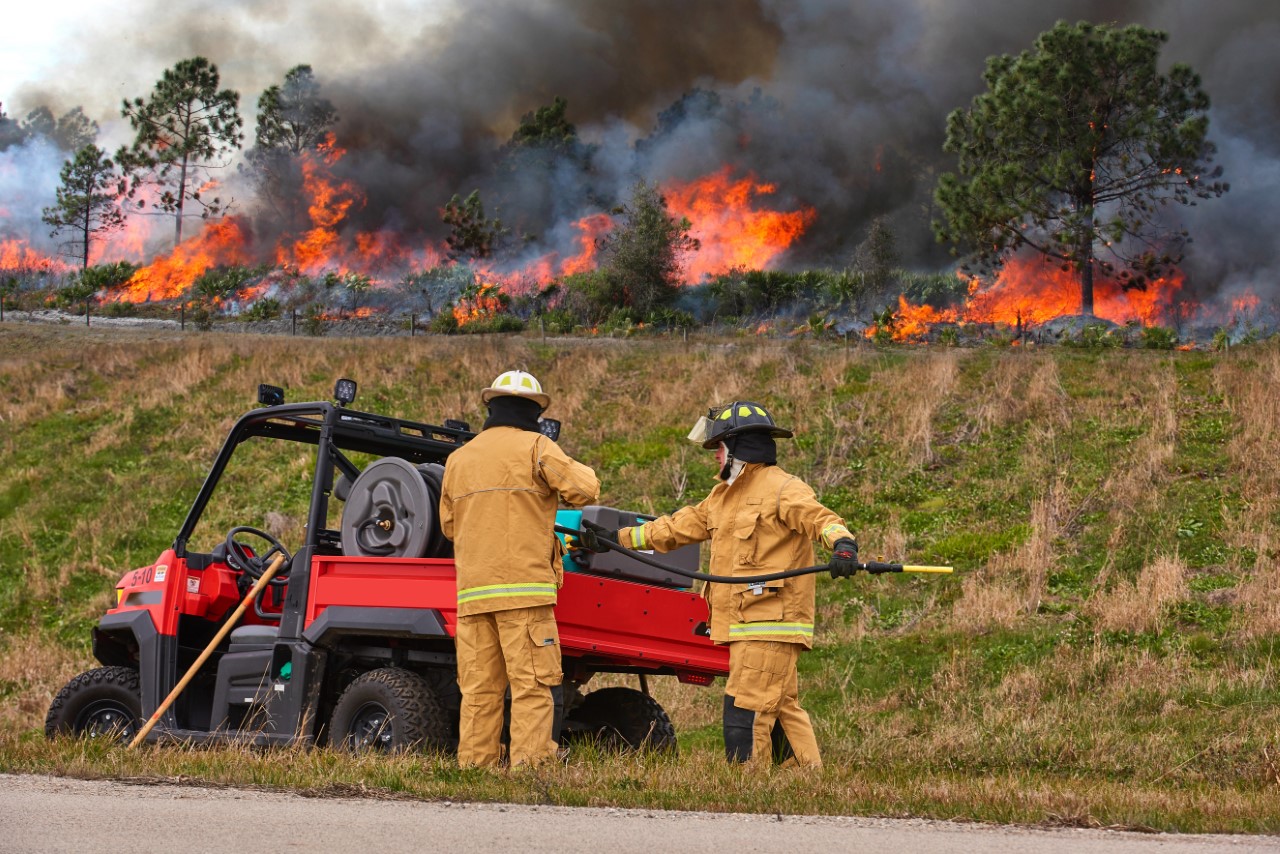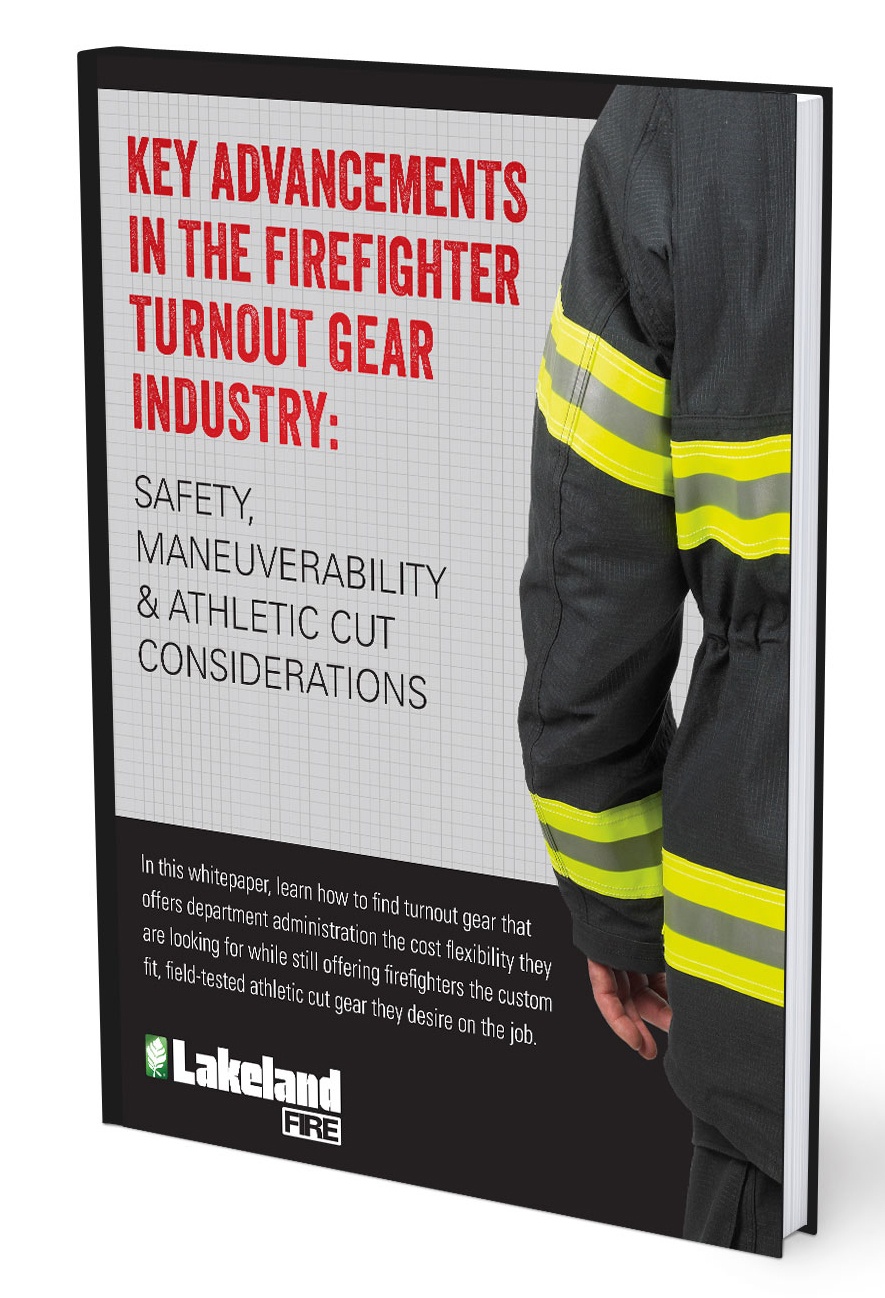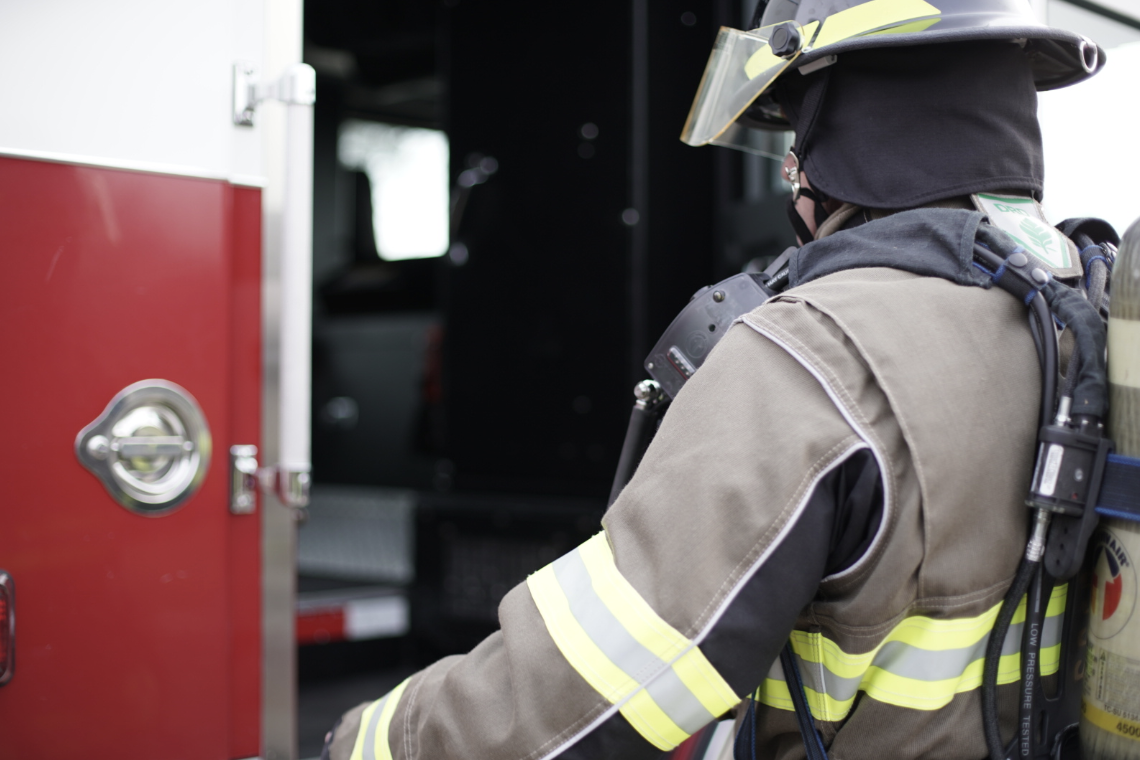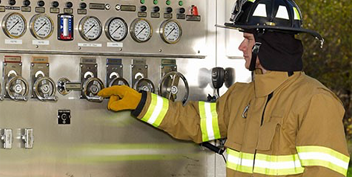As devastating wildfires rage through the United States and Canada, wildland firefighters are tasked with maintaining a continuous presence at the fire line. Unlike a structural fire, which may last several hours, wildfires have unparalleled access to miles of debris and property that fuel the flames. This means that wildland firefighters often find themselves working to extinguish a fire for weeks, or even months.
Most fire departments aren’t afforded the luxury of multiple sets of wildland gear per firefighter, so it’s critical that the gear a station purchases can go the distance. So how can you choose the right wildland gear that will protect your people?
Look for reflective piping or trim that enhances visibility.
Wildland firefighters often remain on the frontlines overnight, so it’s absolutely critical that they can be seen by their team and anyone operating machinery like trucks, helicopters, and hoses. When choosing wildland gear, make sure that it’s equipped with high-quality reflective trim at varying places on the coat and pants or coveralls. Gear with reflective piping that outlines the wearer will offer further visibility and protection.
Ensure the gear is designed to move with your firefighters – not restrict them.
Mobility is key for any firefighter. For wildland firefighting, gear must be light enough that firefighters can navigate the tough terrain while also providing reliable protection.
A primary feature of ergonomic wildland gear is pleats on the back of the coat or coveralls. This small design element makes a world of difference when carrying packs, moving brush, and getting in and out of transportation vehicles.
Make sure your wildland gear is built to last.
Wildland fire gear sees extreme levels of stress and is used for longer durations at a time. With limited budgets, it’s important the fire departments can purchase long-lasting, affordable wildland gear. One key way to discern the quality of fire gear is looking at its design.
The gear should:
- Include an element that shields the zipper, such as a Velcro or clasped closure.
- Feature adjustable or elastic sleeve and ankle cuffs that can conform to the wearer.
- Come equipped with well-placed, sturdy pockets that allow for easy storage and access of tools.
Consider getting more bang for your buck with dual-certified gear.
Fire gear with a single purpose might not be the best purchase for departments who also respond to Technical Rescue calls. With dual-certified fire gear, firefighters can use gear in multiple scenarios, helping departments save money. Dual-certified fire gear can come in many forms, so be sure to find sets that are certified for NFPA 1977 and NFPA 1951 if you’re using the gear for wildfires and Technical Rescue.
Protect Your People with Lakeland Fire Gear
Lakeland fire gear is designed for the ultimate athlete: firefighters. We take into account key elements of firefighting, such as mobility, visibility, airflow, and particulate blocking to offer premium protection. Our portfolio of fire gear includes structural, wildland, extrication, and dual-certified gear at various price points. Contact a Lakeland specialist today to see what gear would best fit your department!



